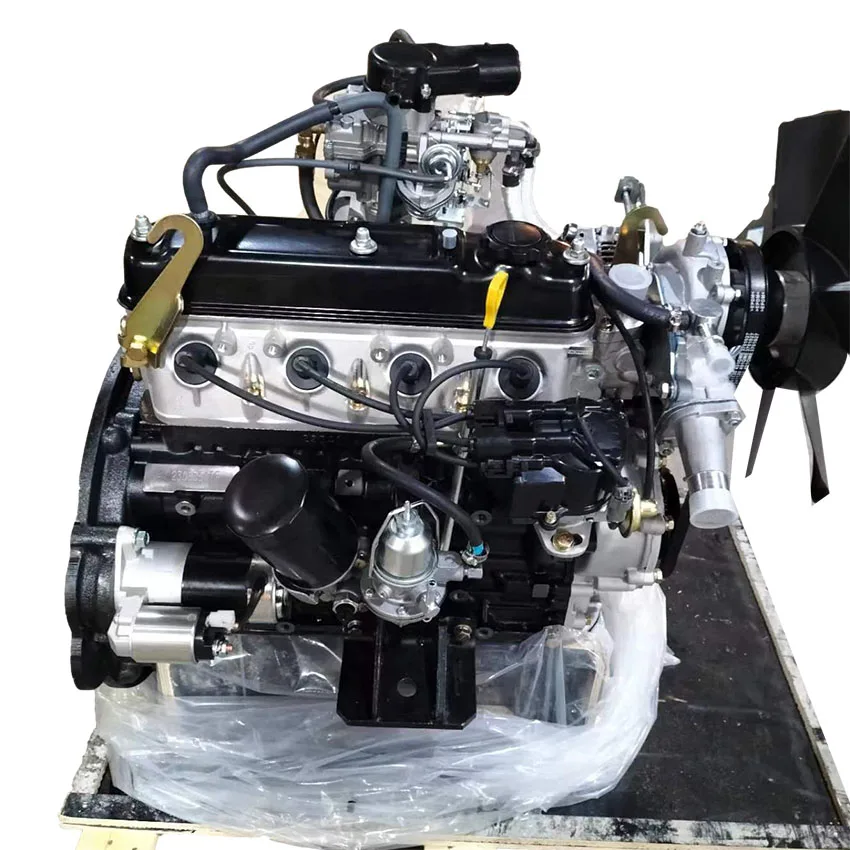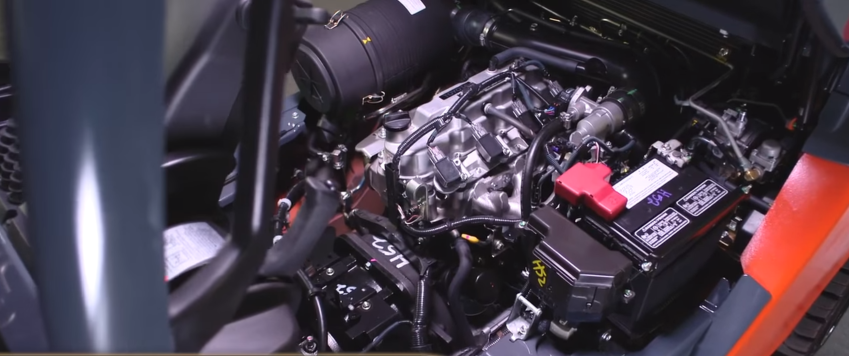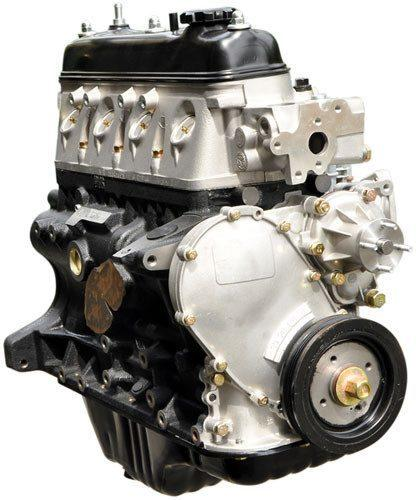Key Features That Make the 4Y Engine a Reliable Option for Drivers
Key Features That Make the 4Y Engine a Reliable Option for Drivers
Blog Article
Exploring the Different Kinds Of Engine: Which One Fits Your Demands?
Internal burning engines continue to dominate due to their integrity, while electrical engines are acquiring grip for their sustainability. Crossbreed engines use a flexible compromise, and diesel engines stand out for their power in requiring applications.

Internal Burning Engines
Interior combustion engines (ICEs) are the foundation of contemporary transportation, powering a large range of vehicles from cars to aircrafts. These engines operate the principle of converting gas right into mechanical power with a series of regulated surges within a burning chamber. The most common types of ICEs consist of gas engines, diesel engines, and rotary engines, each designed to meet particular performance and efficiency needs.
Fuel engines typically make use of stimulate ignition, while diesel engines rely upon compression ignition, resulting in distinctive distinctions in fuel performance and power output (4y engine). Rotary engines, or Wankel engines, supply a compact style and smooth procedure, but are much less commonly used in mainstream applications
ICEs have actually undertaken considerable innovations in technology, including the intro of turbocharging and gas injection systems, which improve total efficiency and performance. Regardless of their efficiency enhancements, ICEs encounter enhancing examination as a result of their environmental effect, especially regarding greenhouse gas emissions. As the vehicle industry develops, the future of ICEs continues to be a topic of dispute, balancing performance, performance, and environmental factors to consider. They proceed to play an essential role in worldwide transportation facilities.
Electric Engines
As problems about environmental sustainability and nonrenewable fuel source reliance expand, electrical engines have actually become a compelling alternative to internal burning engines. These engines make use of electric motors powered by batteries or fuel cells, providing a cleaner and more reliable methods of propulsion.
Among the key benefits of electrical engines is their minimized discharges. Unlike typical engines that melt nonrenewable fuel sources, electric engines produce zero tailpipe exhausts, significantly lowering air pollution and adding to boosted public wellness. In addition, the efficiency of electric motors frequently surpasses that of inner combustion engines, converting a better proportion of power from the power source right into usable energy for activity.
Electric engines are additionally significant for their silent operation, making them ideal for city atmospheres. 4y engine. The simplicity of their layout results in less moving components, which can lead to lowered maintenance expenses and increased dependability over time
Nevertheless, challenges stay, consisting of battery production effects, charging facilities, and array limitations. Regardless of these hurdles, the growing financial investment in electrical lorry technology and eco-friendly power sources factors towards a promising future for electric engines, placed to play an important duty in the change toward sustainable transport.
Crossbreed Engines
Mixing the advantages of both typical and electric internal combustion engines, hybrid engines represent a functional right here solution in the quest for efficient and sustainable transport. These engines incorporate a gasoline or diesel engine with an electric motor, permitting improved fuel effectiveness and minimized exhausts contrasted to conventional cars.
Crossbreed engines run in several settings, making use of the electric motor for low-speed driving and the internal combustion engine for greater rates or when more power is needed. This vibrant operation not just enhances gas economic climate yet also contributes to a smoother driving experience. Regenerative braking is one more crucial attribute, capturing energy normally shed during stopping and redirecting it to reenergize the battery.

As customers increasingly focus on eco-friendliness, crossbreed engines stick out as a sensible choice, offering an effective balance of performance, effectiveness, and environmental responsibility. This versatility makes them ideal for city commuting and long-distance travel alike.
Diesel Engines
Efficiency and power are characteristics of diesel engines, which have visit this website actually long been favored for their effectiveness and fuel economy. These engines operate the concept of compression ignition, where air is compressed to a heat before gas is injected, igniting it without the demand for stimulate plugs. This procedure allows diesel motor to achieve greater thermal efficiency compared to fuel engines, equating right into better gas mileage and reduced carbon dioxide exhausts.
Diesel engines are specifically well-suited for durable applications such as vehicles, buses, and industrial machinery, where torque and durability are critical. Their layout typically includes stronger elements to stand up to the greater stress generated during operation, causing longer life span and reduced maintenance expenses.

Different Fuel Engines
While diesel engines have long controlled the landscape of durable power sources, alternative gas engines are obtaining traction as practical options for an extra sustainable future. These engines utilize a selection of gas, such as compressed natural gas (CNG), ethanol, hydrogen, and gas, aiming to lower greenhouse gas discharges and reliance on fossil fuels.
One significant benefit of alternate fuel engines is their potential to reduced carbon impacts. CNG engines discharge fewer toxins contrasted to standard diesel engines, making them suitable for city transit systems and fleets looking for to boost air quality. Ethanol, originated from biomass, not just decreases exhausts yet likewise sustains agricultural economies.
Hydrogen gas cells represent an innovative development in this world, providing zero-emission power via a chain reaction between hydrogen and oxygen. Difficulties such as infrastructure growth and production prices stay challenges to prevalent adoption.
Verdict
Interior combustion engines provide reliability, while electrical engines prioritize sustainability and decreased upkeep. Crossbreed engines integrate the benefits of both, boosting effectiveness, whereas diesel engines give premium power and torque for sturdy applications.
Crossbreed engines use a flexible recommended you read compromise, and diesel engines stand out for their power in requiring applications. The most usual types of ICEs include fuel engines, diesel engines, and rotating engines, each developed to meet specific efficiency and effectiveness needs.
Unlike typical engines that shed fossil fuels, electrical engines create zero tailpipe emissions, significantly decreasing air pollution and contributing to boosted public health and wellness.Hybrid engines run in a number of modes, making use of the electrical motor for low-speed driving and the internal burning engine for higher speeds or when even more power is required. Hybrid engines combine the benefits of both, improving efficiency, whereas diesel engines provide superior power and torque for sturdy applications.
Report this page